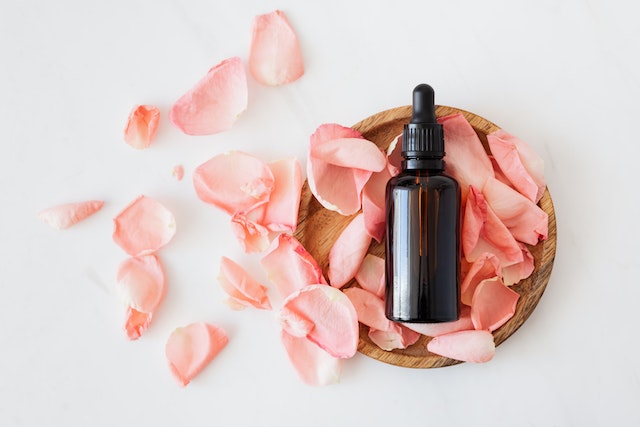The Art and Science of Hair Oils: Nourishing Your Tresses Naturally
Hair care has long been a significant part of human grooming and self-expression. Across cultures and time, the state of one's hair has been associated with health, beauty, and identity. In the quest for luscious locks, various products have emerged, but one natural and time-tested solution remains a staple in hair care routines: hair oil. The use of hair oils dates back centuries and is grounded in a blend of tradition, science, and holistic wellness.
Historical Roots of Hair Oils:
The history of using hair oils can be traced to ancient civilizations such as Egypt, Greece, and India. In these cultures, natural oils like coconut, olive, sesame, and castor oil were revered for their moisturizing, nourishing, and protective qualities. Ancient Egyptians even believed that applying certain oils could promote hair growth and prevent hair loss, highlighting the early recognition of oils as potential remedies for hair concerns.
Holistic Wellness and Hair Care:
Hair oiling transcends its physical benefits and often extends into holistic wellness practices. Massaging hair oil into the scalp not only nourishes the hair follicles but also stimulates blood circulation, which can improve the overall health of the scalp. This practice has been linked to reduced stress and relaxation, exemplifying the interconnectedness of physical and mental well-being.
Benefits of Hair Oils:
Nourishment: Hair oils provide essential nutrients to the hair and scalp. These nutrients can penetrate the hair shaft, helping to repair and strengthen it from within. Oils rich in vitamins, fatty acids, and antioxidants contribute to overall hair health.
Moisture Balance: Hair oils act as natural moisturizers, preventing excessive dryness and brittleness. They help to lock in moisture, leaving the hair softer, shinier, and more manageable.
Hair Growth: While not all hair oils directly stimulate hair growth, some like castor oil have been suggested to have this effect. Castor oil contains ricinoleic acid, which may support hair follicle health and encourage new growth.
Hair Protection: Hair oils can create a protective barrier, shielding the hair from environmental stressors such as UV radiation, pollution, and heat styling. This can help prevent damage and breakage.
Improved Scalp Health: A healthy scalp is crucial for thriving hair. Hair oils can soothe dryness, alleviate itchiness, and even address issues like dandruff by maintaining the scalp's natural moisture balance.
Enhanced Manageability: Applying hair oil can make hair more manageable by reducing frizz and improving the texture. This is particularly beneficial for those with coarse or unruly hair.

Choosing the Right Hair Oil:
The efficacy of a hair oil largely depends on its composition and the individual's hair type and concerns. Some popular hair oils include:
Coconut Oil: Known for its moisturizing properties and ability to penetrate the hair shaft. Suitable for most hair types, especially dry and damaged hair.
Argan Oil: Rich in antioxidants and vitamin E, it helps to tame frizz and adds shine without weighing down the hair.
Jojoba Oil: Similar in structure to the skin's natural sebum, it helps regulate oil production on the scalp. It's suitable for oily scalps and dry ends.
Castor Oil: Often associated with hair growth, it has thickening properties and is commonly used to promote eyebrow and eyelash growth as well.
Olive Oil: A versatile oil that adds shine, softness, and strength to the hair. It's a good option for those seeking overall hair improvement.
Incorporating Hair Oils into Your Routine:
Integrating hair oil into your hair care routine is simple. Here's a basic guide:
Choose the Right Oil: Select an oil that aligns with your hair type and concerns.
Preparation: Warm a small amount of oil in your hands or by placing the container in warm water. This enhances its effectiveness during application.
Application: Part your hair and apply the oil evenly to your scalp. Gently massage in circular motions to boost blood circulation. Distribute the remaining oil through the lengths of your hair, focusing on the ends.
Time: Allow the oil to sit for at least 30 minutes or even overnight for deep conditioning.
Shampooing: Use a mild shampoo to wash out the oil. Depending on the thickness of the oil, you might need to shampoo twice to ensure it's fully removed.
Frequency: How often you apply hair oil depends on your hair's needs. It could range from once a week to a few times a month.
Conclusion:
Hair oils offer a blend of tradition, science, and wellness that continues to resonate in modern hair care routines. From their historical significance to their natural benefits, hair oils have stood the test of time as a reliable method of promoting healthy, vibrant hair. By understanding your hair's unique needs and selecting the appropriate oil, you can harness the power of these elixirs to nourish and enhance your tresses naturally.



